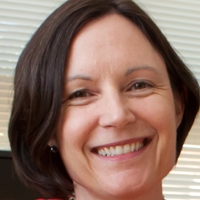
Does Location Matter for Modern Work?
Where will people do their most effective work? Yahoo CEO Marissa Mayer believes employees should work at the office for the organization to be innovative. Others see the diversity offered by people being in different environments, or the ability to choose the environment for the task, as more conducive to innovation.
Past research by others in my field (example 1, example 2) looks at the management tools available to get benefits from diversity while mitigating the problems of distance. My colleagues and I are taking a deep dive into the issues of leadership, and complements for leadership, in more and less virtual work settings.
If more work is being done with fewer jobs ... the remaining jobs, and work in general, must be being done differently. What are the levers we can pull as we do this redesign? Who should be doing this redesign? These are the questions that everyone, from CEO to the newest freelancer, are -- or need to be -- grappling with.
This has been my area of research since 1984, but now I've joined forces with Emma Nordbäck, John Sawyer, and Ron Rice. We are a virtual team that couldn't attack these ideas if we all had to be in the same office: Emma is in Helsinki or Washington, D.C.; John is in Newark, Delaware; and Ron is in Santa Barbara, California.
The Study
We asked employees of a northern European telecom company about location, communication with colleagues and leaders, feedback from the work itself, and engagement. Eight hundred thirty employees responded to our survey. Ninety-nine percent worked full-time for the company and ninety-seven percent had a standard employment contract. They’d been with the company an average of 17 years and largest age group of respondents was 41-50 years old -- perhaps not your standard picture of telecommuting superheroes.
Does working away from the traditional office reduce engagement?
Not for this group. Neither was there a significant impact on how often they communicated with their supervisor, though even I expected that the people working away from the office would communicate less. I should have thought about who these people are. They work for a telecommunications company -- they are good with the tools and have been doing this a while.
how well you communicate can depend on your experience with your co-workers, your tools, the organization, and your work
Carlson and Zmud (1999) looked at how people deal with shifts from communicating face-to-face to using email, and we’ve expanded that thinking to include texting, mobile phones, and conference calls. They found that how well you communicate can depend on your experience with your co-workers, your tools, the organization, and your work. Given our telecom employees’ experience, they have the foundations for working effectively from afar, at least to the extent that it might otherwise affect their engagement with the work.
Next Steps
We have a new set of data just in from both this same company and a northern European travel provider. We expect that the telecom employees have more experience with the telecommunications tools that make up modern work communication, so we do expect to see location playing a role when we compare that company to the travel company.
If it turns out that the travel company employees are more engaged when they are co-located with their colleagues, and if the telecom employees again don’t show a difference… then we’ll be able to make stronger suggestions about how best to design work given your particular base of workers’ experiences.
Even before those results come in, I believe there is value in creating signals around coordination, knowing when someone needs help, or is best able to provide help. Different tools and practices may substitute for things we might miss if we are working from home, a coworking space, a plane, or a client’s office. It may also be that similar tools and practices can make us better connected even when we are co-located with our colleagues.
Acknowledgements
Thank you to Tekes and our universities for funding and other support.
Oct 29, 2014

